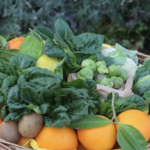War translates into hunger. This is evident from the data we possess and which FAO reminds us of annually. The combination of hunger and food insecurity is not based only on the impossibility of food to travel and reach supply distribution points (markets, supermarkets and shops) but also on the difficulty for farmers to carry out their work. Farmers often practice what is called family farming. Family farms represent 90% of world farms with a contribution to world food needs of around 80%. In fact, they represents a determining factor for global food security as well as for the protection of the environment. However, despite this key role, most of these farming families are poor and often food insecure.
FAO data tells us that food insecurity or food crises are not accidental. There are specific responsibilities: hunger comes first of all with wars. Whether they are preventive or defensive conflicts, whether they are self-styled humanitarian missions, brutal settling of scores or instead power operations tout court: for those who remain involved in the fighting or affected by the consequences, it does not matter. It does not matter to the 17 million Yemenis, the nearly nine million Nigerians, the 7.7 million Congolese, the 7.6 million Afghans, the 6.5 million Syrians and so on, passing from South Sudan to Somalia, all ‘Iraq and Ukraine today. It is the account of those who, again in the neutralized language of official documents, are victim to “food insecurity” for reasons linked to wars. Hungry for the choices of others, in simpler words. In 2020, 155 million people were in acute food insecurity, 20 million more than in 2019. Sub-Saharan Africa and South Asia are the regions with the highest levels of hunger in the world. The combined effect of armed conflicts, the COVID pandemic and climate change risks, in fact, to pulverize all the albeit slow progress made in recent years, with gloomy forecasts for the future. This is the picture drawn by the Cesvi Foundation in the 16th Italian edition of the Global Hunger Index.
In light of all this, with the planet shaken by new winds of war, we want to remark the nature of farmers markets as places where community, caring and cultural exchange comes first. They not only help building food autonomy for peoples, away from agro-industry speculations, with a smile of farmers and consumers who know each other, but help protecting the environment of which the farmers are custodians.
The World Farmers Markets Coalition is international and promotes friendship and collaboration between peoples. Hence, once again the fate of the world is entrusted to food. Food is a bearer of values. Food can lead to war when it is the subject of a struggle for resources. Food is peace if it is shared in the “banquet of peoples.”






